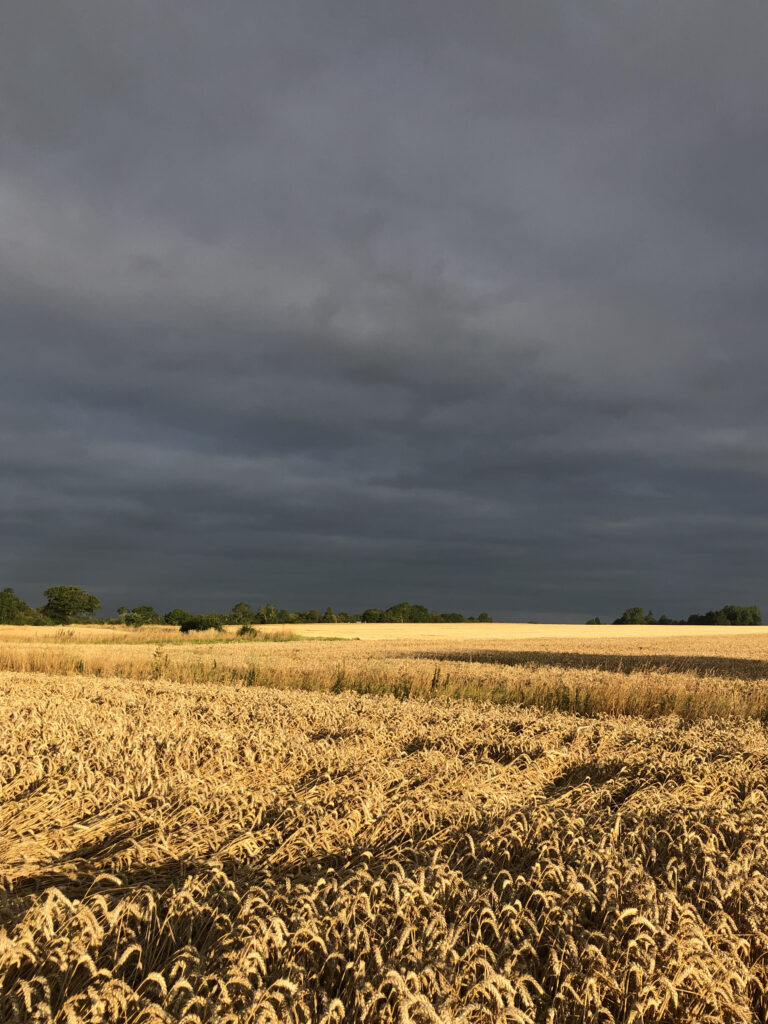
Reader, I have been taken to task, reprimanded, for my despondency. Could my next post, I was asked, please be written on a sunny day?
And to my detractor I reply: chance would be a fine thing! After months of grey and wet, the weather forecasters told us pressure was rising. My hopes rose at the same time. But no, East Anglia is now doomed to what is known as anticyclonic gloom – the poor visibility caused by broad, low and persistent sheets of strato-cumulus cloud. In other words, it scarcely gets light, and the sun shuns us, as he has all summer. For those of us sensitive to lack of sunlight it not only depresses, but provokes physical aches and pains.
Often, when we go out at night, the sky has cleared, and the stars and planets blaze from perfect skies: Jupiter and Saturn low in the south east; Altair high above; Arcturus, who has nearly finished his summer run, in the west. This clarity can, sometimes, just spill over into the first hour after sunrise, and some mornings have rejoiced the heart. But the promise is unfulfilled, and soon the cloud rolls in from the sea, and the cold north wind blows. On bank holiday Monday I lit a fire.
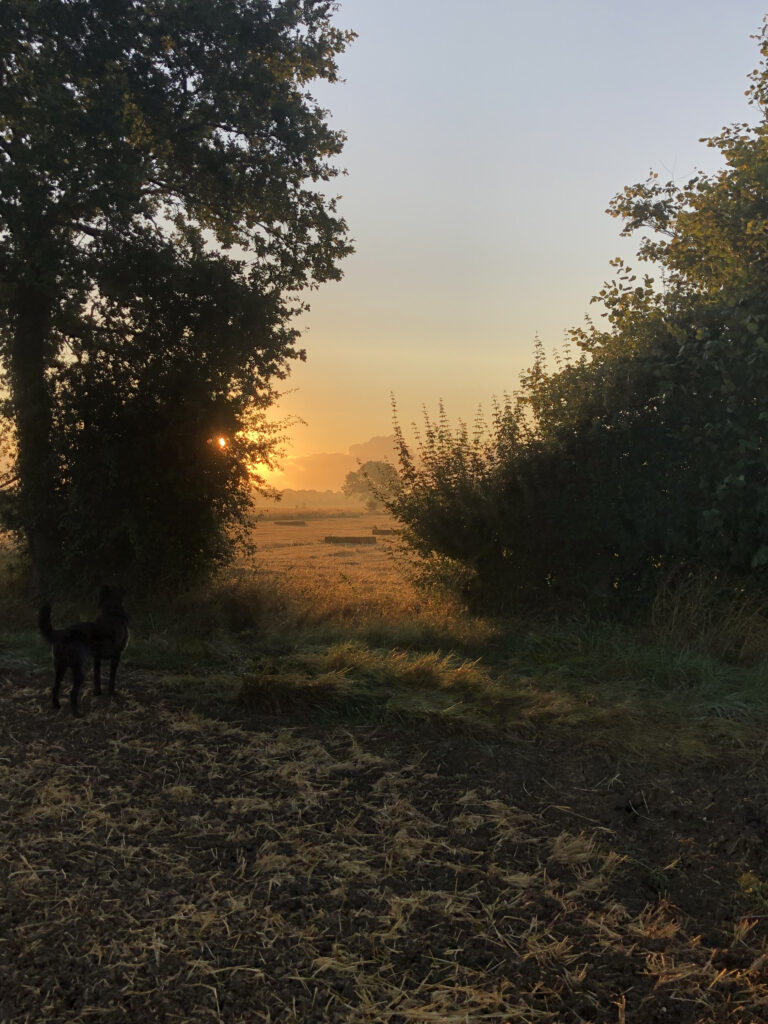
So I hope my readers will forgive me. I am not writing this on a sunny day.
Pity the poor farmers. High pressure usually brings dry weather, but sometimes the cloud comes low enough to produce a wetting drizzle. And that’s enough to stop harvest for the rest of the day. They have had a difficult time of it. Lack of sun meant the grain of the barley did not swell, then cloudbursts flattened the crop. The wheat is looking good – as is the price – so there is some compensation.
Gradually, little by little, despite the setbacks, the fields are being cut, combines and balers working late into the night. All too often as soon as the bales are in, the field is mucked and ploughed, the shares thrusting deep into the ground, the earth violated before it has had a day’s rest. Not always, though; sometimes bales are stacked high, great monoliths that stand for a week or two like prehistoric stones round the field. The dog and I search out stubble fields. She gallops and gallops.
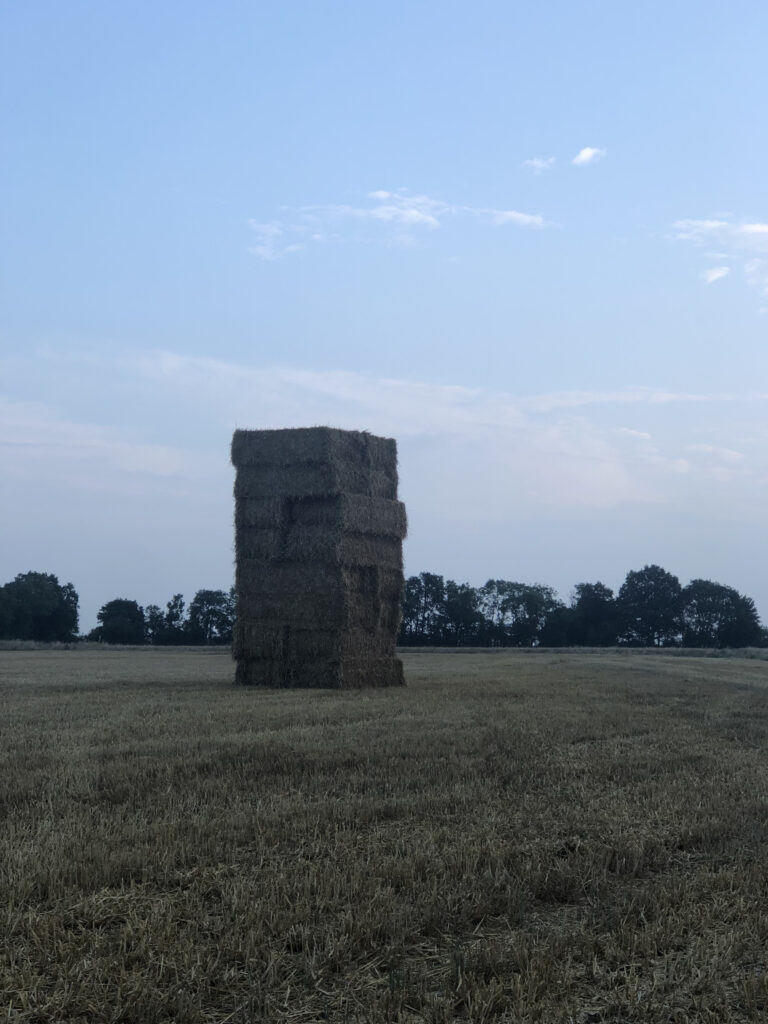
In recent years no-till or min(imal) till has become more popular with some farmers, but – generalising – the older ones tend to stick to the old ways. Min and no-till systems minimise soil disturbance and are claimed to sequester additional carbon over time, as organic matter increases and with it soil carbon levels. It can also lower the costs of machinery use in that less energy is required. There is less damage to soil structure, less risk of soil erosion, less environmental damage from nitrogen leaching and pesticide run-off from bare (ploughed) land, and environmental benefits such as increased soil fauna and habitats for birds.
What have I done with this cool drear month? Much work finishing a commission which I hope to reveal next month. I had my five minutes of fame interviewed by a local radio station when my parish won an environmental award. The days race past with work, painting, writing articles, parish and CAFOD (Catholic Agency for Overseas Development) stuff. Sometimes, on good days, I don’t notice that it is cold and grey.
I have, however, discovered a new weather saint: St Louis, whose feast is 25 August. He did not oblige this year.

Garden flowers have thrived, lasting longer without heat. Some crops too have done well, with record amounts of french beans and courgettes. But the fruit (tomatoes, figs) does not ripen, and everything lacks the sweetness that comes with sunlight. As do I.
Mid-month I had my bath resurfaced, and it was done by a Mr Baison. The aptronym rather pleased me, and set me thinking about nominative determinism. Google came up with some good examples: Dr Pam Graves, an archaeologist; Christian Guy of the Centre for Social Justice; Sara Blizzard, a BBC weather presenter; Frances Crook of the Howard League for Penal Reform; and Tom Kitchin the chef. It provokes the question whether they veered towards their chosen profession because of their name (nominative determinism), or whether it was mere coincidence that the name fitted the job. Apparently Jung believed that Sigmund Freud (=joy) was an example, since Freud wrote – inter alia – on pleasure. I’m not sure I am convinced by that. I will just mention two gems I know of personally: a firm of solicitors locally called Hazzard and Pratt; and also I was at school with a girl called Gay Tipple, but since I have had no contact with her since then, I cannot say whether she became either lesbian or alcoholic.
Perhaps the comments box will be full of examples of aptronyms this month. I’d love to hear them.
I have said several times now that it is time to draw these chronicles to a conclusion. In future I will post only when I have something to say which is not gloomy. Maybe there might be a sunny day in September…
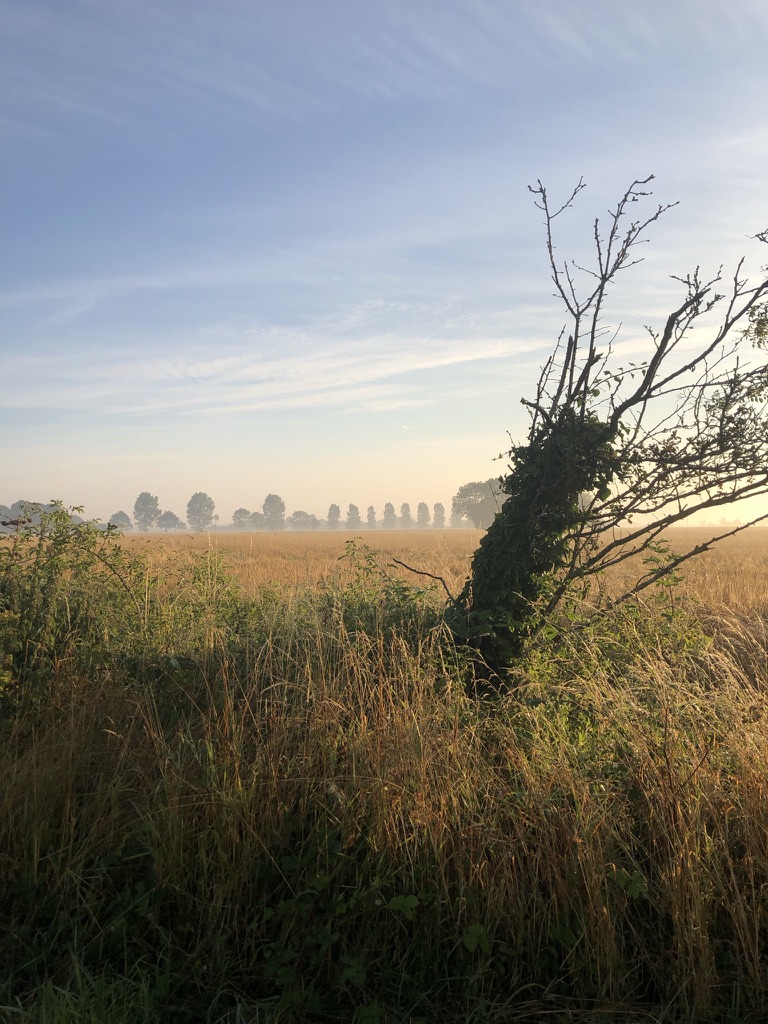

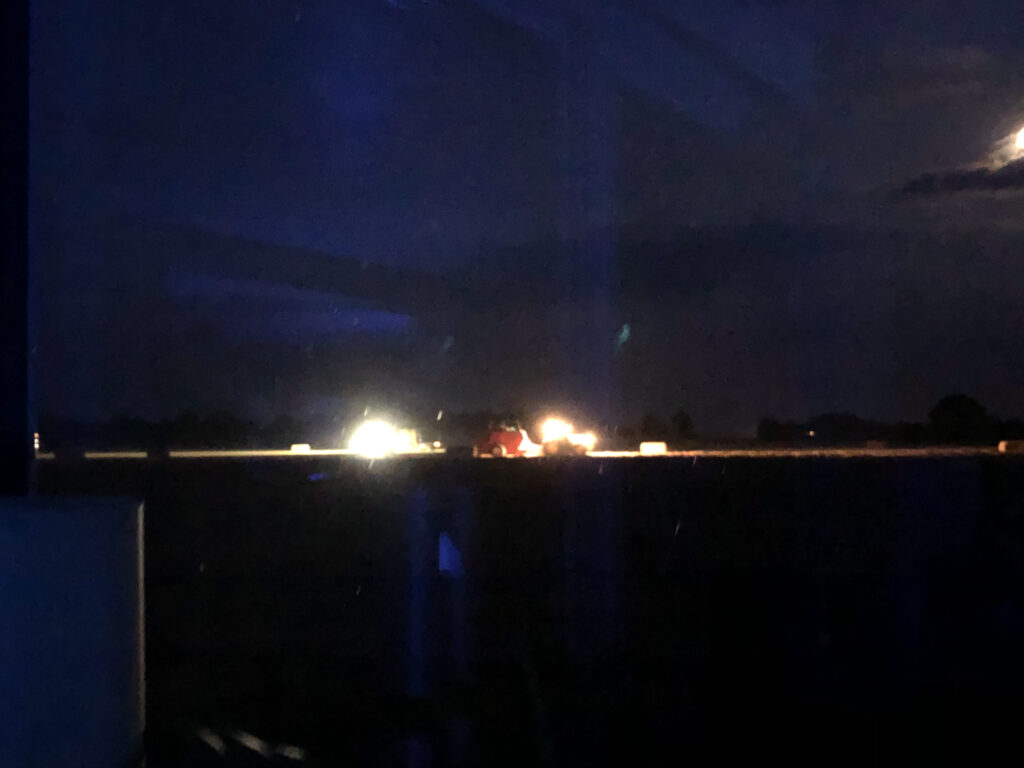
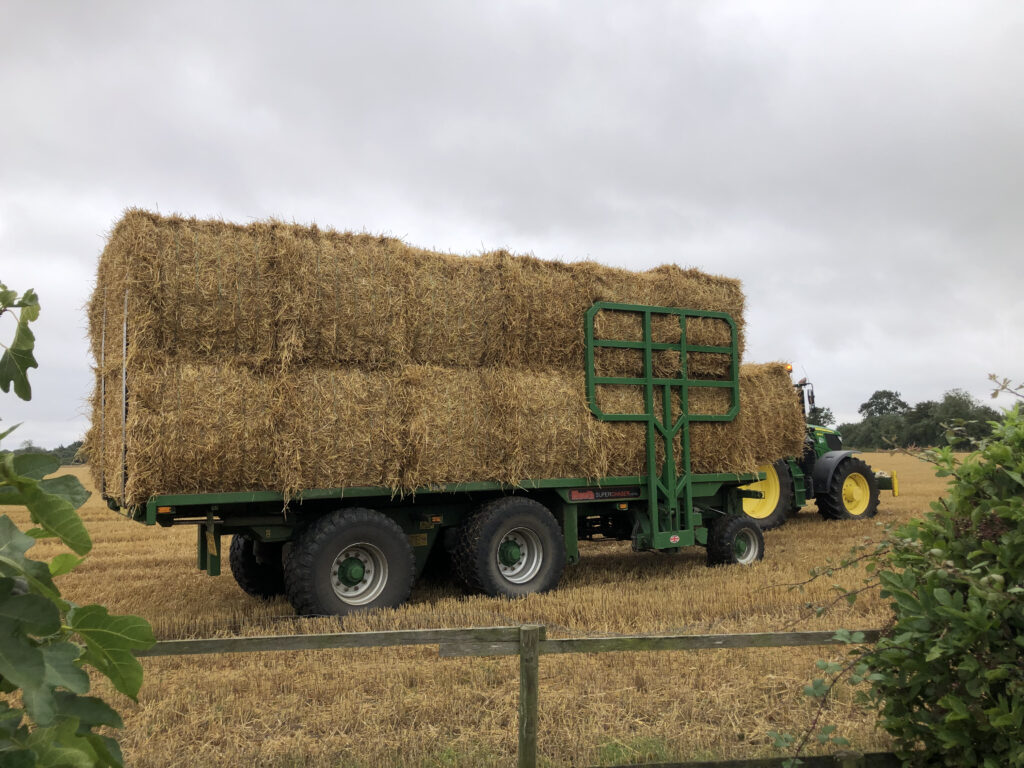
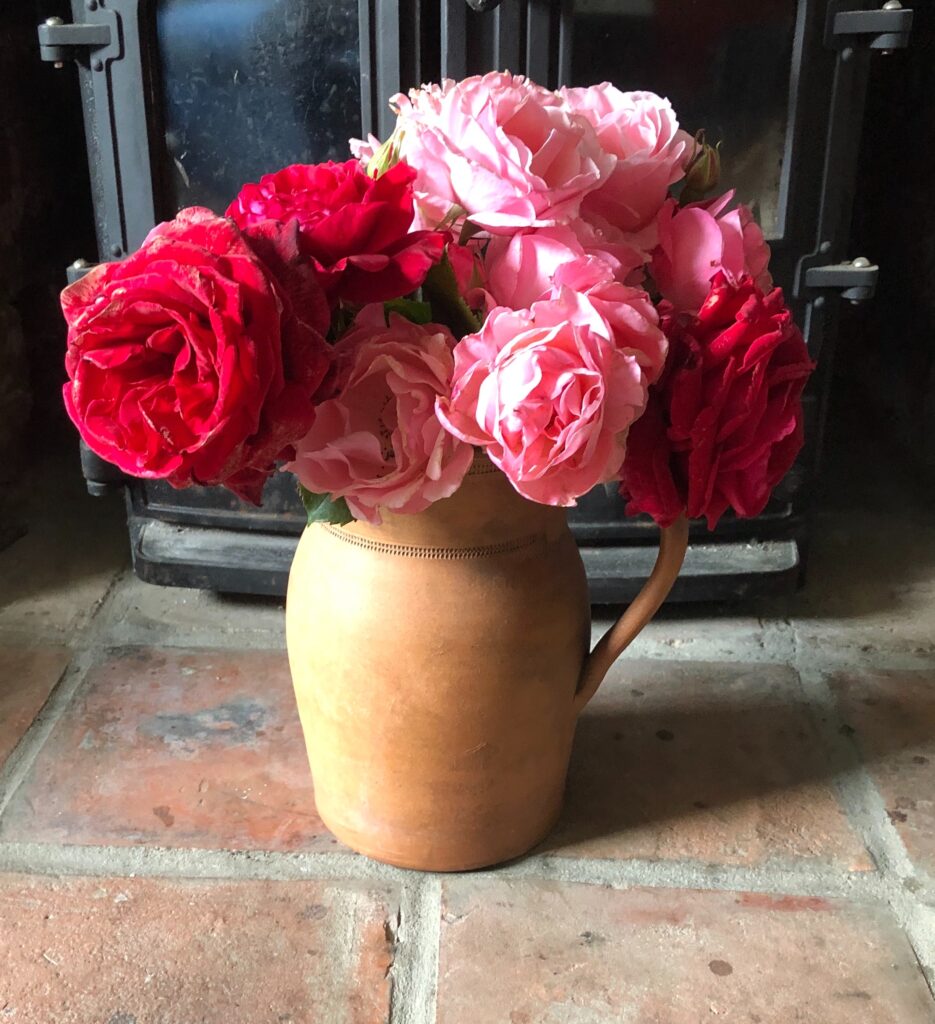
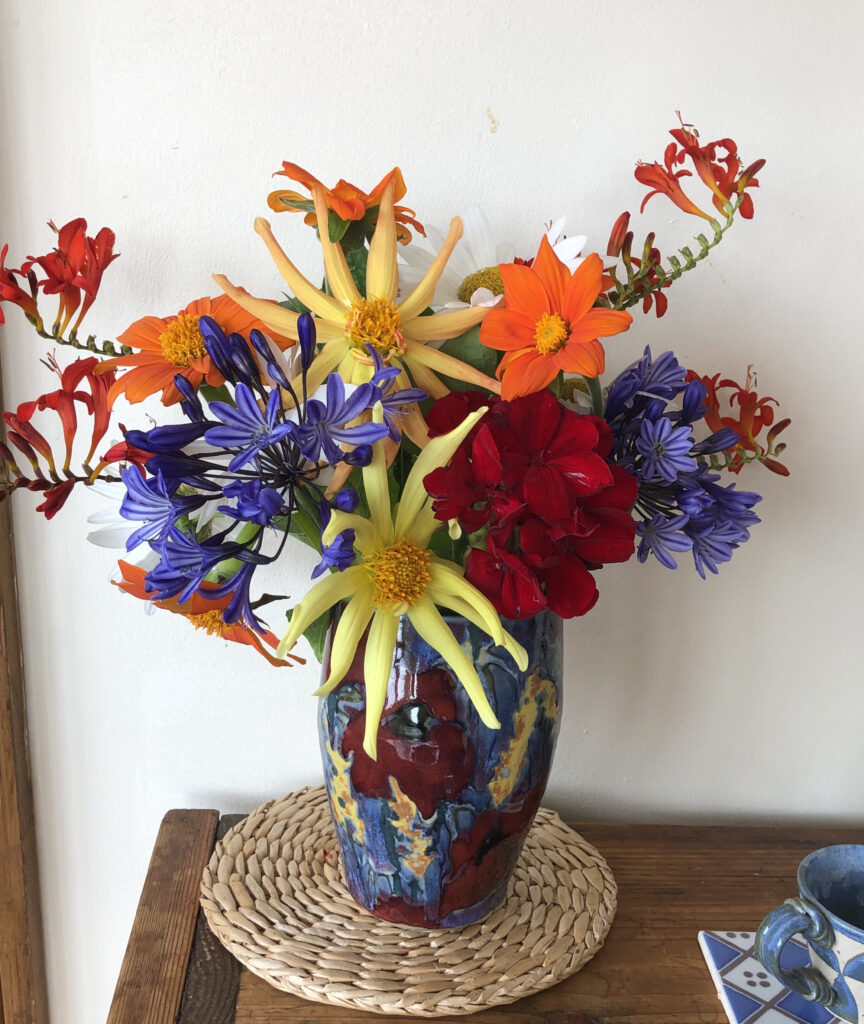
Blazing heat here now so looking forward to the next one!